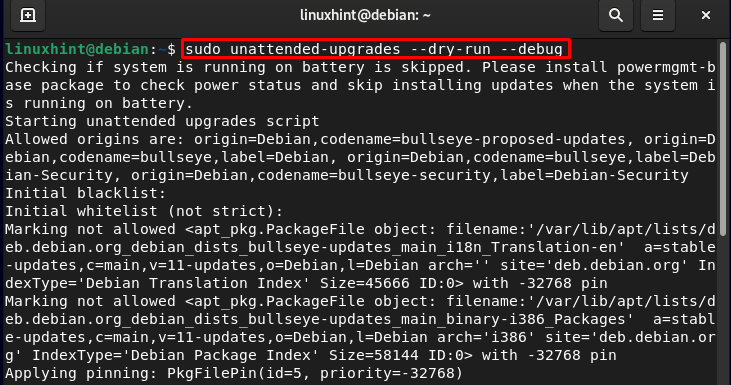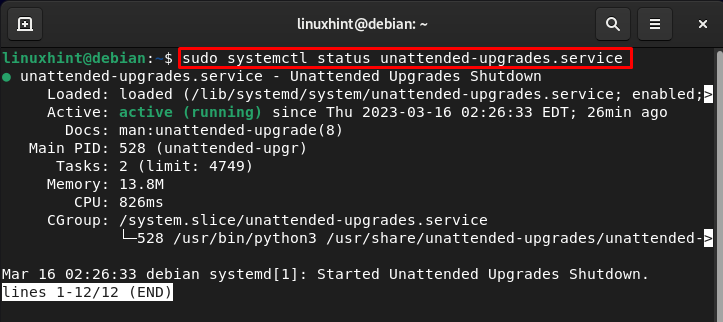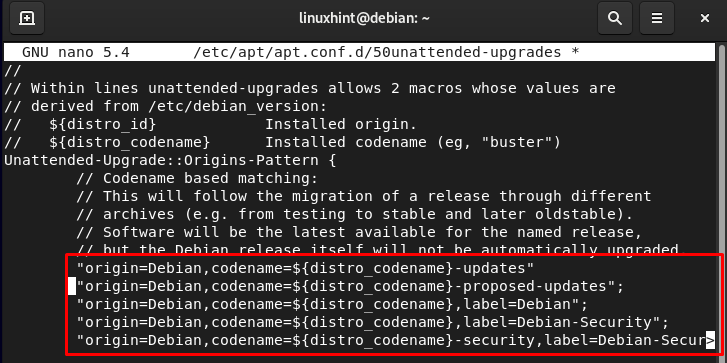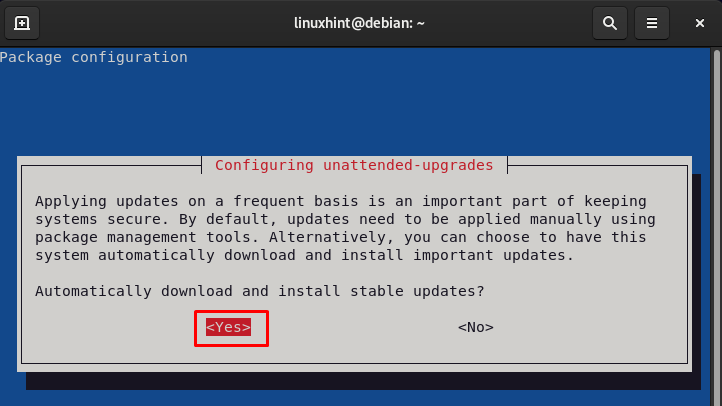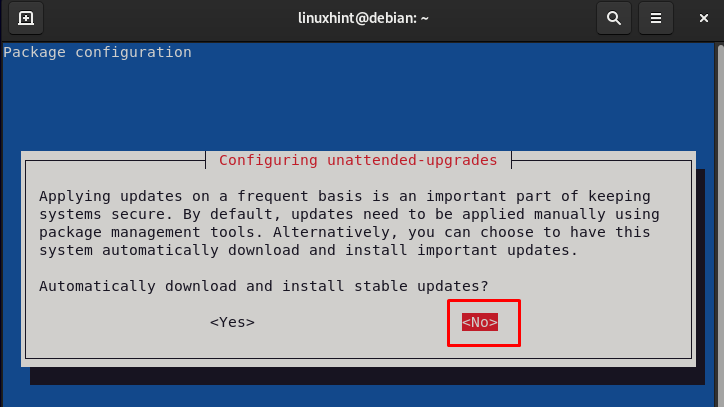In this article, we will discuss how to configure the automatic security updates on Debian using unattended upgrades.
Configure Automated Security Updates on Debian
The configuration of unattended upgrades on Debian 11 is a straightforward process and can easily be done via the terminal. However, before installing, ensure the system is up to date, and for that run the following command:
Next, execute the following command in the terminal to install or confirm the installation of the unattended upgrades on the Debian system:
By default, it’s already installed on Debian system.
Now enter the following command in the terminal to confirm whether the unattended upgrades are working properly or not:
To check the status of the unattended upgrades on Debian, use the systemctl command:
Modify the Configuration File of the Unattended Upgrades
You can use any text editor to modify the configuration file. Here we are using the nano to open the configuration file of the unattended upgrades:
Once the file is opened, you can make changes to it, and remove the // to make that function active.
In the file you will notice a section that looks like this, remove the // marks from the lines to enable the updates:
"origin=Debian,codename=${distro_codename}-proposed-updates";
"origin=Debian,codename=${distro_codename},label=Debian";
"origin=Debian,codename=${distro_codename},label=Debian-Security";
Save the file using “CTRL+X”, add “Y” and press Enter.
Enable Unattended Upgrades on Debian 11
To enable the unattended upgrades on your system, you will need to configure the file. Enter the following command in the terminal and hit Enter:
A pop-up will appear on your screen, choose Yes to enable the unattended upgrades on Debian.
Note: It’s better to reboot the system to apply the automatic changes to Debian.
Disable Unattended Upgrades on Debian 11
Although the unattended upgrades are useful, you can disable them anytime by executing the following command again.
The following pop-up will appear, select the No to disable them:
Bottom Line
Configuring the unattended upgrades is an effective feature in the Debian system that automates the process of installing the updates on the system. This will help them keep your system up to date. It’s already installed on Debian; however, you need to configure it and then enable its service to ensure installing the automatic update on the system.


